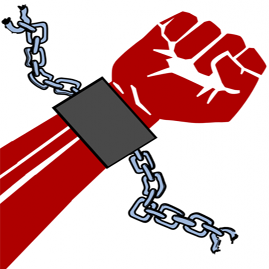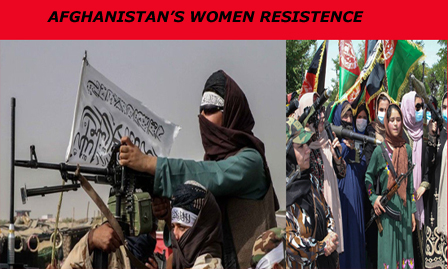| |
CLICK HERE ON HOW TO READ
THE BELOW (updated 12 MAR 2022)
When one hurts or kills a women
one hurts or kills hummanity and is an antrocitie.
Gino d'Artali
and: My mother (1931-1997) always said to me <Mi
figlio, non esistono notizie <vecchie> perche puoi imparare qualcosa da
qualsiasi notizia.> Translated: <My son, there is no such thing as so
called 'old' news because you can learn something from any news.>
Gianna d'Artali
France 24
19 July 2022
By Hannane Ferdjani
<<Ivorian bill that would legalise polygamy for men earns the ire of
women's groups.
A proposed bill at the Ivorian parliament that would legalise polygamy –
but only for men – has prompted strong reactions from women's rights
advocates, which have dubbed it a step back in the fight for equality.
Polygamy is prohibited in many parts of the world but remains widespread
in West African countries. <We can't legalise polygamy to satisfy a
man's libido,> legal expert Désirée Okobé says bluntly. Okobé is based
in Abidjan and is one of the women who have spoken out against MP
Yacouba Sangaré’s bill to legalise polygamy in the West African country.
<A man chooses to have more than one wife for personal, egotistical
reasons. Opening this door would end up creating an imbalance in our
society,> Okobé says in a telephone interview. According to her and
several women's rights activists in the country, legalising polygamy
would be a setback for Ivorian women who still face systemic
inequalities and discrimination. The UN Commission on Human Rights
considers the practice discriminatory against women and has called for
its eradication.>>
Read more here:
https://www.france24.com/en/africa/20220719-ivorian-bill-that-would-legalise-polygamy-for-men-earns-the-ire-of-women-s-groups
Al Jazeera
13 July 2022
By Kiana Duncan
<<Thai garment workers decry COVID arrests after rare labour win
Labour activists claim authorities are selectively enforcing pandemic
rules to suppress organising.
Phnom Penh, Cambodia – When the Thai government in May ordered a Hong
Kong clothing company to pay unpaid wages to 1,250 laid-off Thai factory
workers, union leader Sia Jampathong knew the rare win would not be the
end of the fight.
Jampathong, the president of the Textile, Garment and Leather Workers'
Federation of Thailand, soon had his fears confirmed. On July 7,
Jampathong, the factory union chairwoman, and four student labour
activists were indicted for violating pandemic restrictions on large
gatherings during a protest outside Government House in Bangkok last
year. Jampathong does not deny breaching the emergency decree on large
gatherings. But he believes authorities are selectively enforcing the
rules to keep the labour movement in line after scoring a rare victory
in the Southeast Asian country, where workers have minimal protections
against exploitation and abuse.
Thailand, which has been governed by former army officer Prayuth Chan-ocha
since a 2014 military coup, keeps a tight rein on dissent, with
authorities in recent years cracking down on labour activists and
pro-democracy protesters. <It feels like it was discrimination from the
government, it was more like an excuse they tried to use on us,>
Jampathong told Al Jazeera, adding that the participants in the protests
had taken precautions such as wearing masks. <I think we kept patient
for a long time. There were many months that we didn't come out. It's
proof that the government failed to solve the problem. We had no other
options, so we had to bring workers to meet the government.> Efforts by
Al Jazeera to contact the Ministry of Justice for comment were
unsuccessful. The case against Jampathong and his fellow activists comes
after Hong Kong-headquartered Clover Group International was ordered to
pay 281 million baht ($8.3 million) in back wages and severance to
workers laid off from Brilliant Alliance Thai Global, which shut with a
day’s notice following bankruptcy in March 2021. Victoria's Secret,
which outsourced pro-duction of its lingerie to the factory, agreed to
fund the settlement through a loan to the Hong Kong-based company.
Clover Group International initially requested that the payments be made
over a 10-year period, a strategy rejected by the workers. In Thai
labour disputes, workers often never see their unpaid wages or severance
pay, even when courts rule in their favour. A study last year by the
Worker Rights Consortium found that, in 31 similar cases in nine
countries, more than 37,000 workers were collectively owed $39.8m.
Brilliant Alliance’s mostly female workforce, some of whom had worked at
the factory for decades, were given just one day's notice.
<When we saw that it happened, a lot of people were crying. We were all
shocked and surprised,> Teuanjai Waengkham, a 25-year worker who serves
as general secretary of Triumph International Labour Union, told Al
Jazeera. Waengkham said many workers had to take out loans to survive
during the 15 months they waited to be paid. <Brilliant Alliance
promised me this would be long-term, I would have a job for a long
time,> she said. Prasit Prasopsuk, president of the Confederation of
Industrial Labour of Thailand, said the closure caught workers by
complete surprise. <The shutdown happened suddenly,> Prasopsuk told Al
Jazeera. <Most, if not all, workers did not prepare for this. They had
lots of burdens, they had lots of responsibilities. Lots of them still
had kids in school.>
Template for future activism
Brandix, a Sri Lanka-based apparel company that formed a partner-ship
with Clover Group International two months after the closure to rescue
its operations, said in a statement to Al Jazeera that the company had
faced <severe financial distress>. Brandix added that the newly-formed
Clover Global is <completely different> from Clover Group International.
The Lau family, stakeholders in both companies, could not be reached for
comment regarding the com-pany's bankruptcy or the abruptness of the
closure. For labour advocates, the Brilliant Alliance workers'
successful campaign offers a template for other cases both in Thailand
and overseas.>>
Read more here:
https://www.aljazeera.com/economy/2022/7/13/after-rare-labour-win-thai-garment-workers-cry-suppression
The Guardian
11 July 2022
Global development is supported by
Bill and Melinda Gates Foundation
By Caroline Kimeu in Nairobi
<<‘Sexual abuse is normalised': Uganda struggles with #MeToo.
Samantha Mwesigye's case had hoped to be the catalyst for a change to
the culture of toxic masculinity. But four years on, she is still
waiting to be heard. In September 2018, a Ugandan lawyer, Samantha
Mwesigye, filed a sexual harassment complaint against her boss at the
Ministry of Justice. She says she hoped it would end a cycle of unwanted
sexual advances and workplace retaliation. It was a year after the #MeToo
movement had taken off, with women around the world increasingly
prepared to hold powerful men to account for sexual harassment and
abuse. Women's groups rallied behind Mwesigye, holding press
conferences, writing articles and showing support online. They saw hers
as a test case. But what came next was much worse than the decade of
harassment she claimed to have endured, Mwesigye says. She was dismissed
from her job and rendered <unemployable> in legal circles, while her
boss, Christopher Gashirabake, was cleared by an internal review at the
ministry – and was promoted twice, rising to become an appeal court
judge. Gashirabake declined the Guardian's requests for comment, but he
has previously denied the allegations. In 2019, he issued a lengthy
rebuttal of Mwesigye's claims and a counterattack in which he accused
her of a smear campaign. He said he had spoken to her in the past about
dressing inappropriately and dyeing her hair red, and claimed to have
withdrawn her from certain work situations because clients found her
rude. <One time I confronted him [over] sexual harassment and he taunted
me to report him to public services, saying that there was nothing much
they would do to him.
<For me to see that unfold before my eyes threw me off the edge,> says
Mwesigye, who also has a further complaint pending against Gashirabake.
In 2019, she filed a case against him and the attorney general for
sexual harassment and unlawful termination. The case has been adjourned
numerous times. <This is not something that I’m willing to let go. I'd
already anticipated that, from start to finish, this could take at least
10 years, but it's so upsetting that I've spent the first four without
being heard,> she says. Mwesigye also knows that if she appeals against
a decision on her outstanding case, it would be heard by the court in
which her alleged aggressor is a judge. In Uganda, one in five women
aged 15 to 49 have experienced sexual violence. Fear of harassment and
abuse are part of many women’s daily realities, but they are often
disregarded.
<Nobody takes sexual harassment seriously around here. It's difficult to
say you were sexually harassed,> says Namujuzi Flavia, 30, a shopkeeper
in Kabaganda, on the outskirts of Kampala.
<Where would one go? To the police?> she adds, laughing.
Victims reporting their experiences are often met with scepticism and
disbelief by the authorities. Many cases go unreported, as those who do
speak out are often blamed for the abuse. Eunice Musiime, executive
director of Akina Mama wa Afrika, a pan-African women's organisation,
says: <Because of the structural and systemic issues with our criminal
justice system, not many women would come out to report cases of sexual
violence because they just know that it would not work in their favour.
There are very few cases of people who have gone through the process
successfully,> she says.>>
Read more here:
https://www.theguardian.com/global-development/2022/jul/11/sexual-abuse-is-normalised-metoo-takes-off-in-uganda-samantha-mwesigye
|



